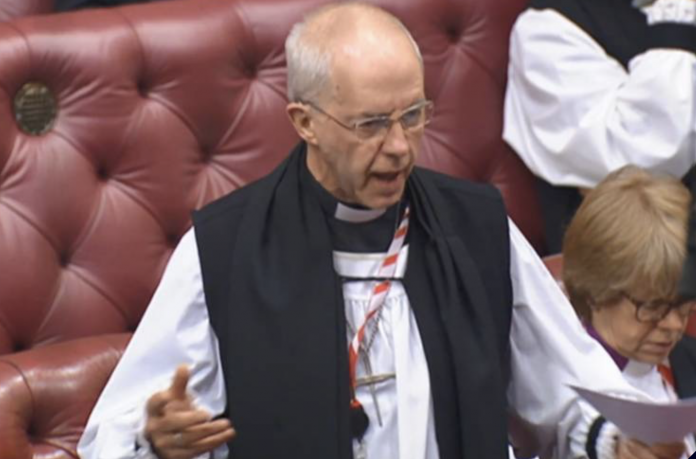While Parliament faces a shake-up, the Church of England’s parliament, the General Synod, meets on Friday in York. Among myriad papers published beforehand is a preliminary bishop-led report on trust.
“We need to hear what we have missed,” it declared. Over 57 pages, the answer seems to be: just about everything.
It’s a staggering document, failing to acknowledge the degree to which the flock has lost trust in the institution. It contains no exploration of how the bishops missed being an “essential service” during Covid, at perhaps the time of greatest national need since the Second World War.
In February 2021, the secretary-general to the Archbishops’ Council publicly dismissed people’s anger over pandemic church closures as “that old canard”. The duck is not dead, but still quacking. The whole episode epitomised that we can’t trust the Church to step up in a crisis – which is when the Church is most wanted.
Have no lessons been learnt? This trust report seems worryingly detached, lecturing us that mistakes of ability or competence are less significant than breaches of integrity or morality. This is a complete misfire. It needs to explore what the mistakes are and how to put them right.
Even now, the Church has a major opportunity to self-renew by addressing the human crises flowing from lockdown. However, as a letter writer in The Telegraph last week observed, Church leaders frustratingly appear to be preoccupied with other issues.
I went to church after my father’s death in search of solace and hope, but got a lecture on gay marriage and the environment. Worthy though these topics may be, they were no use at all in my hour of need. It weakened my trust in the Church because I felt the messaging was top-down, coming from a detached echo chamber at HQ which didn’t recognise what the Church’s core business was.
By definition, Church preoccupations must quickly align with the needs of those seeking a little love, not be diverted to a debate on whether there should be a Bishop for Outer Space. Even the banks are offering confidential mental health support, on a special mental health web page: “We’ll listen to your needs and work with you to see what we can do to help.”
The air gap between the bishops’ public concerns and what ordinary people are worrying about implies a lack of empathy with everyday problems, eroding trust and further widening the gulf.
What should the Church do to restore trust? Ask those who care about the church, go to church and are increasingly expected to run it for nothing; ask overstretched, depressed clergy; it is they whose trust is broken. Stop spending money meant for parish priests on disproven and unsustainable new projects, or appointing what amount to more diocesan rat catchers.
All the Church needs to do for England’s people is to provide a good vicar. It has money to provide priests for “everyone, everywhere”.
How can you trust an organisation which fails to provide the main thing – like a hospital with not enough doctors? How can you trust an organisation with over £15 billion under management which is deliberately accelerating parish mergers and church closures?
Emma Thompson is a church volunteer and member of Save The Parish










